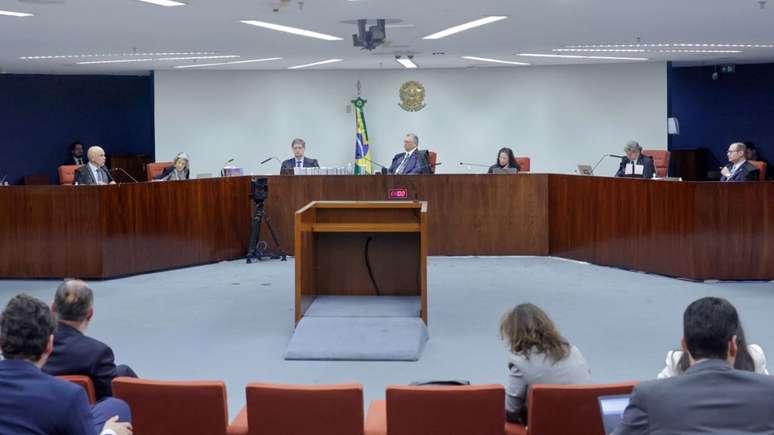Research shows that 75% of young Brazilians want to become digital influencers. The illusion of an easy life and ostentation enchant young people and make them lose appreciation for school and education. What to expect from the future? A few years ago, if you asked a young person what they wanted to be when they grew up, they would most likely hear answers like “judge”, “engineer”, “stewardess” or “firefighter”. Some, more dreamy, even said they wanted to be a footballer or a singer.
Today the scenario has changed and it is legitimate to wait for “influencers”. A survey conducted by the startup INFLR in 2022 revealed that 75% of young Brazilians dream of becoming digital influencers.
The topic continues to be current and I dare say that the percentage is likely to have increased. The data showed that there were two main motivations. For 75% of respondents, the choice involved being a relevant voice and inspiring others. For 64% it was about financial interests.
Call me a pessimist, but the above worries me. I think that, in a simplistic way, we can divide the problem into two moments: in the consumption of content by digital influencers and also in the consequence of this: the wrong dream of being an influencer and having an easy life.
Alienation of youth and children
It all starts with content consumption itself. A few days ago my mother called me to talk about one of my nephews. He is 11 years old and is very busy at school, so much so that the management even considered expelling him. In class he just sleeps, makes a mess and doesn’t concentrate. For his age he has serious difficulties with reading and writing.
But what does this have to do with the issue of influencers? Everything. My nephew spends hours on his cell phone. There is irresponsibility on the part of parents. My sister and brother-in-law fail, yes, but they are not alone. Millions of parents put their children’s cell phones in their hands so they can be calm.
Many influencers produce content aimed at children and young people. Others, even if they don’t explicitly say so, know that they have these two groups as a target. Much of this content is completely senseless and superficial. I understand that they are not necessarily teachers and that they have no obligation to educate anyone, but I can’t help but think about the sense of responsibility that should exist.
Wow, they have so much reach and influence. They could, even in a basic way, get young people to work on their critical thinking or focus, minimally, on their content to spread important information. However, the practice is quite different. They promote the idea that everything is easy and that life is perfect. Furthermore, they produce content that makes young people into alienated and unthinking beings, completely unaware of the real world. They are, even if not intentionally, supporting a future generation of alienated and unthinking people.
Inappropriate sexualization
I cannot help but talk about the very serious problem of the sexualization of young people. There is a lot of content produced of a sexual nature, even if in a more polite way, based on games or jokes with a double meaning. It is completely irresponsible. Here, I confess, I am a little curious about the lack of repercussions, especially because we live in a country where a sexual education project in schools is capable of generating a revolt.
My nephew is a big victim of this and it makes me very sad. He often has jokes and quips that are completely inappropriate for his age. He is a child who has had his childhood stolen.
Children should be protected from the Internet, not from schools. I stress that I understand the responsibility of parents and families, but we cannot exempt content producers.
Study for what? I will become a digital influencer
I always try to be a person open to dialogue and understanding that the world is changing very quickly. I understand that new professions, new models and formats of work are emerging and that the Internet and social networks are an integral part of this new universe.
I also want to take this opportunity to point out that there are very ethical and responsible influencers. There is also a great work of academically trained influencers who use their platforms to spread important content to the population for free.
However, the vast majority support the idea that life is easy, that studying is irrelevant, and that anyone can be as rich as them if they just dedicate themselves to social media.
There is so much ostentation with very expensive cars, luxurious villas, endless trips, five-star restaurants and a life based only on smiles, lots of money and comforts. Who would want to study like this? Who would want to dedicate themselves to a long-term investment path, when the world you have in the palm of your hands shows a perfect life and a seemingly much simpler path? Almost no one. It is not surprising, it is not impossible that we will arrive at a scenario in which the dream of becoming an influencer will be that of all young Brazilians.
What these guys don’t notice, especially because their beloved influencers don’t really care to show it, is the megastructure that hides behind seemingly banal, everyday and easy posts. Many even have teams made up of professionals with degrees in the most diverse fields.
I’m afraid for the future
I always like to end the article with some direction or possibility, but this time I reserve the right to be pessimistic. I have dedicated my life to education for eight years and believe, in every cell of my body, that it is the strategy and the greatest ingredient for a less unequal future. However, to be honest, I fear that the desired future is an illusion.
This is because young people are our future. They are the ones who will follow all the work we do today. They are the ones who need to occupy the spaces to fill them with diversity. They are the ones who will have to support public policies.
But it seems naive to me to expect this from young people who simply don’t read anymore, who want everything easy, who no longer know how to handle frustration, who no longer want to study and whose biggest dream is to become an influencer.
______________________________
Vozes da Educação is a weekly column written by the youth of Safeguarda, a social volunteer program that helps students from Brazilian public schools enter university. The founder of the program, Vinícius De Andrade, and the students assisted by Safeguarda in all the states of the federation take turns writing the texts. Follow the Salvaguarda profile on Instagram at @salvaguarda1
This text was written by Vinícius De Andrade and reflects the author’s opinion, not necessarily that of DW.
Source: Terra
Ben Stock is a lifestyle journalist and author at Gossipify. He writes about topics such as health, wellness, travel, food and home decor. He provides practical advice and inspiration to improve well-being, keeps readers up to date with latest lifestyle news and trends, known for his engaging writing style, in-depth analysis and unique perspectives.








